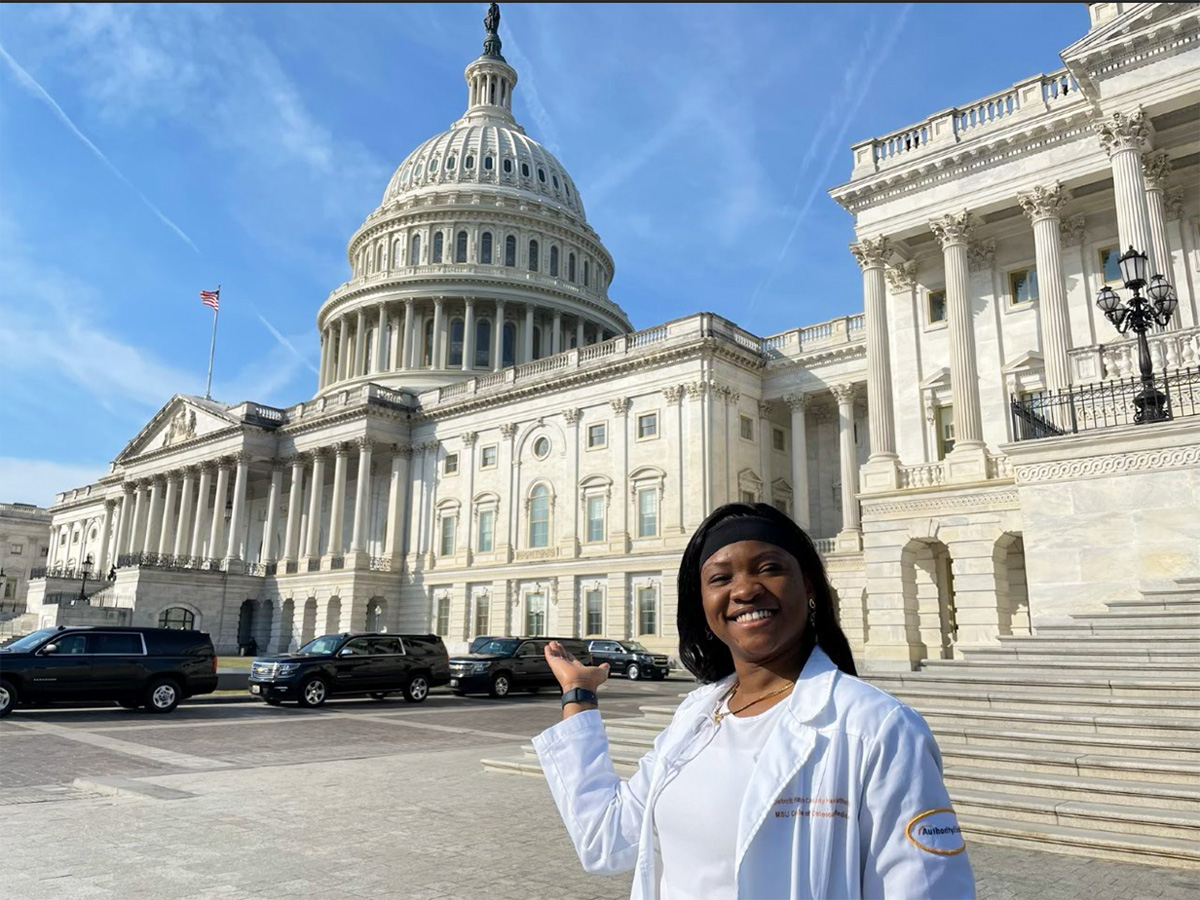Bridging the Gap: How Teaching Health Centers are making America healthy again

By Oluchi Anuniru, M.D.
As I stood before the Capitol dome, in Washington D.C., I found myself contemplating the critical intersection of medicine and public policy. I grappled with fundamental questions: What is the role of teaching health centers in revitalizing America’s health care landscape? What’s my role as a physician? How do I advocate for the Teaching Health Center Graduate Medical Education (THCGME) program? As these questions flooded my mind, I came close to grabbing my phone and calling Uber to the airport. What did I sign up for? Can I just return to my bubble (clinic) and let “others do this advocacy thing”? I am glad I conquered that fear because I would have regretted that decision. The experience was wonderful and insightful. Who best to advocate for us and our patients, if not us? More awareness needs to be created about the political determinants of health and their impact on access to quality of care.
On this trip, I got the opportunity to work alongside Dennis Archambault, vice president of Public Affairs for Authority Health, Dan Renberg, representing the American Association of Teaching Health Centers, and other members of the American Association of Teaching Hospital Centers (AATHC). The strategy briefing we had before engaged with members of Congress and their staff helped put things in perspective. I quickly learned that the THCGME program is essential for training the next generation of primary care physicians in community settings, addressing critical shortages in rural and urban areas. Hence, the need to strengthen our collective voice in advocating for teaching hospital centers as a key solution to the primary care workforce shortage in medically underserved communities.
Authority Health, the second-largest teaching health center program in the nation, has continued to play a massive role in bridging the gap of primary care physician (PCP) shortage in medically underserved areas, with more than 55% of its graduates working in underserved areas.
When I reflect on why Authority Health and its impact on my career, I think of the acronym T.H.R.I.V.E. This program has shaped me into a physician who is “Thoughtful, Hardworking, Respectful, Intentional, Versatile, and Excellent (THRIVE).” I wanted a program that would equip me to thrive in underserved communities, empower them to lead healthier lives, and improve access to quality care in these areas. This program provides opportunities that promote community engagement and population health.
Reflecting on this Washington trip, my eyes were opened to the crisis in the THCGME program because Congress has not provided the funding stability that medical residency programs necessitate and has not significantly extended the multi-year reauthorization that expired in 2023. This program has been dependent on extensions in several federal continuing resolutions and there is great concern that there will be insufficient appropriations to cover the new class of residents. The goal of the trip was to advocate for multi-year reauthorization and an increase in the annual per resident payment. I am glad I got the opportunity to share my insights and discuss the impact of Authority Health GME with members of Congress and their staff representing Michigan.
Oluchi Anuniru, M.D., is a third year Family Medicine resident currently serving an advocacy rotation. She has been Institutional Chief Resident and also a clinical faculty member for Michigan State University College of Osteopathic Medicine.
Tags: American health care, gme, Graduate medical education, medical residency, medically underserved communities, medicine, primary care physician, public policy, public policy and medicine, teaching health center